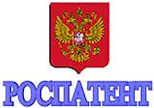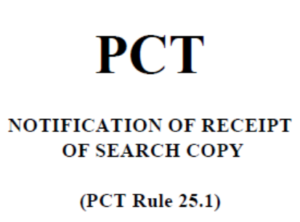 The search fee paid by US filers of PCT applications for the Russian searching authority will increase on December 6, 2017 from $482 to $698. You can see the details here.
The search fee paid by US filers of PCT applications for the Russian searching authority will increase on December 6, 2017 from $482 to $698. You can see the details here.
This changes slightly the ranking by cost of the various searching authorities available to filers in RO/US. Here is how the search fees will rank after the fee change of December 6:
- EP – $2238
- US – $2080
- AU – $1688
- SG – $1552
- JP – $1372
- KR – $1114
- US – $1040 (small entity)
- IL – $963
- RU – $698
- US – $520 (micro entity)
The result of this fee change is that, for the first time in a very long time, the Russian patent office will not be the least expensive searching authority for PCT filers in RO/US. ISA/US will be the least expensive (but only for a filer that qualifies for micro entity status).
Filers in RO/US tend to pick ISA/EP, ISA/US, or ISA/KR. It is relatively rare that a US filer will pick ISA/RU (or ISA/AU, ISA/IL, ISA/JP, or ISA/SG). Nonetheless, for the US filer who is planning to file a PCT application in which ISA/RU is selected, there will be an opportunity to save a little money. The filer could file on December 5 rather than December 6, and the savings would be $216.

 Filers in the Patent Cooperation Treaty, Madrid Protocol, and Hague Agreement systems (utility patents, trademarks, and industrial designs) know that it is important to keep always in mind when midnight will arrive in Geneva, where WIPO is located.
Filers in the Patent Cooperation Treaty, Madrid Protocol, and Hague Agreement systems (utility patents, trademarks, and industrial designs) know that it is important to keep always in mind when midnight will arrive in Geneva, where WIPO is located. One thing that happens, after you file a PCT patent application, is that Form PCT/ISA/202 arrives. (Or fails to arrive.) Why do we care about Form PCT/ISA/202? I offer some thoughts here.
One thing that happens, after you file a PCT patent application, is that Form PCT/ISA/202 arrives. (Or fails to arrive.) Why do we care about Form PCT/ISA/202? I offer some thoughts here.  As I mentioned in
As I mentioned in  It will be recalled that on September 1, 2017 the search fee paid by US filers of PCT applications for the EPO searching authority increased from $1992 to $2099. Now it has been announced that on December 1, 2017 this fee will increase again, this time to $2238.
It will be recalled that on September 1, 2017 the search fee paid by US filers of PCT applications for the EPO searching authority increased from $1992 to $2099. Now it has been announced that on December 1, 2017 this fee will increase again, this time to $2238. 